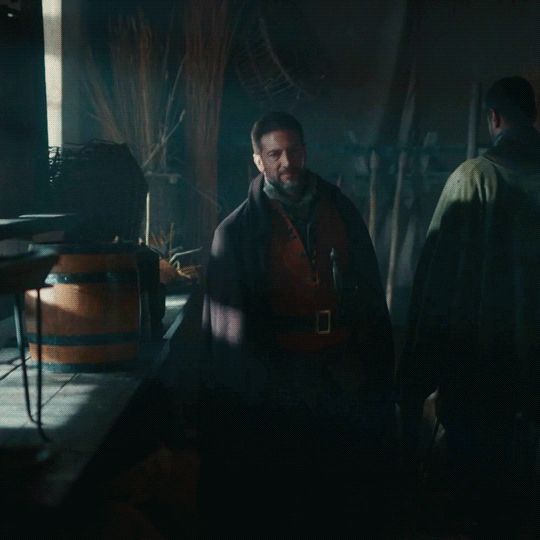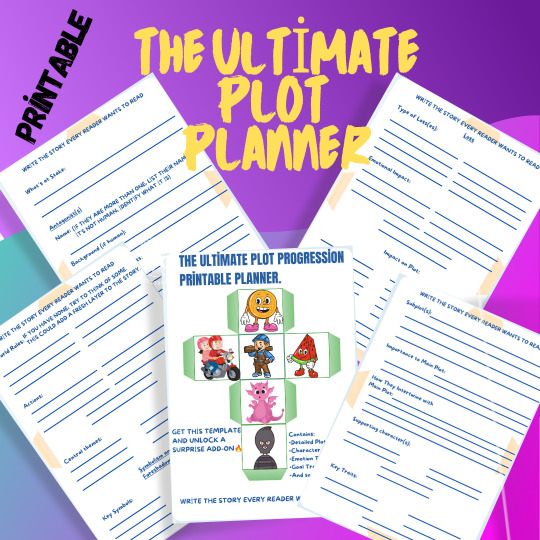Elena. Russia. Feminist, ficwriter, vidder. 100% Eleanor Guthrie Team. Shameless Woodes Rogers fan. My English is bad, but if you want to ask me anything, I`ll try to answer. My side blog: guthrie-rogers-place- blog dedicated my Black Sails OTP
Don't wanna be here? Send us removal request.
Text

fan poster
#black sails#woodes rogers#luke roberts#woodesrogersedit#lukerobertsedit#blacksailsedit#perioddramaedit#perioddramasource#onlyperioddramas#userthing#userfish#graphics
10 notes
·
View notes
Text
Fuf, my vid from Fandom Kombat. Witches & Uther. Russian language track, "Голоса ведьм" (Voices of Witches).
3 notes
·
View notes
Text

Queen of the Colony
578 notes
·
View notes
Text
"Девятый дом" Ли Бардуго
Дочитала "Девятый дом" Ли Бардуго и впечатления двойственные. С одной стороны, интересный сюжет, интересные персонажи, Дарлингтон ван лав, и я оформила предзаказ на сиквел на Озоне (судя по финалу первой книги и названию сиквела, сиквел будет про Дарлингтона, ну позязязя, можно его там будет побольше). С другой - вот эти милые (нет) попытки вызвать жалость к наркоторговцам... Ну ладно, не ко всем, но к женщинам, которые наркоторговлей занимаются, но блин. Вот это вот "их жизнь заставила" бесит, янимагу. Причем Тара, которая жертва убийства и к которой давят на жалость, напирая на то, что такая же судьба могла бы ждать главную героиню, если б её волшебники к себе на работу не пристроили, явно та еще сука. Она и шантажом там занималась, и толкала очень специфический наркотик зарвавшемуся мажору, который с помощью этой наркоты насиловал девушек на вечеринках, знала, что именно толкает, и непохоже, чтоб ей где-то жало, ну и вообще явно не белопушистая зая и во всех этих делах с Домами главной явно была она, а не её тупой бойфренд, который многого не знал и так и не осознал широту возможностей, так сказать. С третьей, двойные стандарты автора прекрасны (нет). Тара (отвественная за кучу изнасилований и много чего еще) - жертва, её надо жалеть, а Дейзи заслуживает исключительно осуждения, хотя по сути эти две героини и Алекс - персонажи двойники: оказавшись в скверной ситуации выживают как могут, манипулируют, используют других, стервы все три. Про отдельные попытки изобразить Дарлингтона избалованным представителем золотой молодежи тоже хочется нехорошее сказать. Но в западных либеральных кругах нынче модно жалеть криминальные элементы и осуждать людей из привилегированных слоев, даже если и те и те творят говно, а иногда даже если вторые ничего особо плохого и не творят. Не знаю, это в голове у Бардуго так насрано или она просто пытается попадать в тренды, но гадливое ощущение осталось. (Да, я видела примеры и хуже, те же "Черные паруса".)
0 notes
Text


PETER PAN (2003) • Mr. Darling • Hook
247 notes
·
View notes
Text

teen!Eleanor Guthrie
6 notes
·
View notes
Text

Hannah New as Daphne Rye in Mr Burton (c)
5 notes
·
View notes
Text






Luke Roberts as Thomas Percy in Gunpowder Siege 101
#gunpowder siege#thomas percy#luke roberts#perioddramaedit#perioddramasource#lukerobertsedit#black sails cast#onlyperioddramas#filmtvcentral#cinemapix#userthing#dailyflicks#mediagifs#tvgifs#tvedit#tvarchive#tvfilmspot#filmtvedit#filmtvtoday#smallscreensource#period drama#costume drama#historical drama
25 notes
·
View notes
Text






A Ghost Story for Christmas s07e01 - Mezzotint (written and directed by Mark Gatiss)
#a ghost story for christmas#mezzotint#mark gatiss#rory kinnear#m r james#montague rhodes james#horroredit#perioddramaedit#perioddramasource#horrorgifs#horrortvfilmsource#onlyperioddramas#userthing#filmtvcentral#smallscreensource#cinemapix#tvarchive#periodedit#agsfcedit#filmtvtoday#dailyflicks#tvedit#filmtvedit#tvgifs#adaptationsdaily
33 notes
·
View notes
Text
Writing
How to Write Realistic Characters in Your Stories
Writing realistic characters can be challenging because there's a lot to consider. Even though I've touched on this subject before, it's a complex topic that requires vast knowledge to get it right. Here's a guide on what to consider when writing people in your stories:
1. Similarities to Real People: Just like in real life, your characters need to share traits with real people. This helps readers connect with your story and characters on a more personal level.
2. Negative Traits: It's important to explore your characters' negative traits to make them more believable. For example:
- People often think of themselves first because it's part of our DNA to protect and care for ourselves. Your characters should share these qualities.
- People pretend to be something they aren't or act differently in front of others due to fear of not being liked. This affects almost everyone at some point.
- People are easily distracted and often miss important lessons or moments that contribute to their growth.
- People are dishonest at times to protect themselves, making it hard to fully trust them.
3. Outside Influence: Your characters are also influenced by external factors, just like you are in real life. Consider these suggestions to help you along the way:
- People tell you what to think, feel, believe, and how to act. They often tell you that you're not good enough. These are common issues we go through as humans, making it important to your stories.
4. Realism vs. Idealism: While we sometimes want to write stories filled with fairy tales of a perfect world, sadly, that doesn't exist. There will always be someone who breaks your trust, and writing about this is important. You can take this information and practice cause, effect, and solutions to these situations to see what you come up with.
I hope this helps you on your writing journey. Happy writing!
904 notes
·
View notes
Text
I don't think we give Jonathan Harker nearly enough credit for his absolutely unhinged choices. In 1897, that pathetic wet cat of a man was written with enough grit, willpower, and raw human stupidity to rival any of our modern horror podcast protagonists. When faced with a centuries-old vampire, in a coffin, drenched in fresh blood, he really thought the best thing to do was to hit it in the face WITH A SHOVEL. The audacity. The misplaced confidence. The sheer desperation. No plan. No hesitation. Running on fear and spite alone. And i fucking love him for it. Truly the character of all time.
9K notes
·
View notes
Text



𝐇𝐀𝐍𝐍𝐀𝐇 𝐍𝐄𝐖 as 𝐄𝐋𝐄𝐀𝐍𝐎𝐑 𝐆𝐔𝐓𝐇𝐑𝐈𝐄 𝐀𝐍𝐃 𝐋𝐔𝐊𝐄 𝐑𝐎𝐁𝐄𝐑𝐓𝐒 as 𝐖𝐎𝐎𝐃𝐄𝐒 𝐑𝐎𝐆𝐄𝐑𝐒
Black Sails. 3x07.
56 notes
·
View notes
Text
“You alone made virtue your banner” Really, Rhaenyra? You never said “questioning my virtue is an act of treason”? You never swore on your dead mother that you didn’t have sex before marriage to emotionally manipulate Alicent? You didn’t cry about “treAsON!” and “viLE inSuLTs!” every time someone pointed out the obvious fact your kids are illegitimate and you’re trying to usurp them to thrones they have no right to? How exactly is that not “making virtue your banner” aka wanting all the benefits of virtue while sleeping around however you want?
I’m so sick of this “It’s okay for Rhaenyra to sleep around because she isn’t a hypocrite like Alicent”. If she’s such a non-hypocrite then why does she lie and gaslight constantly about her sexual relations? And don’t give me that “her sons would be KILLED” bullshit, no, they fucking wouldn’t if she took accountability for once in her spoiled life while Viserys was alive there’s no doubt he would’ve legitimized her bastards. That’s possible to do, but you have to admit what they are first.
Rhaenyra wanted to do whatever she wanted with no consequences or regard for anyone else as always. The gall of her to judge Alicent, Alicent didn’t birth any bastards and cause issues for her kids in doing so. She waited until Viserys was dead which is far more respect than he deserved.
204 notes
·
View notes
Text
How to create an atmosphere: Forest
Sight
tall trees with thick canopies of leaves
alternating light coming in through the moving leafs of the trees
ground covered with a mix of grass, ferns, and fallen leaves
wildflowers adding splashes of colour
animals like deer, boars, squirrels, birds
insects like butterflies and bees add movement and life to the scene
Hearing
the air is filled with the melodious songs of birds
gentle rustling of leaves as the wind moves through the trees
constant hum and buzz of insects
the soft crunch of leaves, twigs, and soil while walking through the forest
Touch
the spongy feel and the soft coolness of moss
the rough texture of tree bark
the cooler temperature in the forest
with a gentle breeze that can be felt on your skin
Smell
the smell of fresh grass
the rich, earthy smell of soil and decaying leaves
the scent of fresh leaves, pine needles, and blooming flowers
the smell of the clean, slightly damp scent of water and wet earth from a nearby stream or pond
Taste
the clean taste of fresh air
the taste of sweet and tangy wildberries
the taste of self-picked mushrooms
the taste of edible wildflowers
the taste of a variety of nuts
the taste of wild greens
More: How to create an atmosphere
5K notes
·
View notes
Text
Beginners Guide to Descriptive Sentences
Hi writers.
I’m Rin T, and in this post I’m excited to share with you a detailed guide on how to craft vivid descriptions and descriptive sentences for your writing. I’ve long believed that descriptive writing is the magic that turns ordinary text into an immersive experience. When done well, every sentence acts like a brushstroke that paints a scene in the reader’s mind.
──────────────────────────── Why Descriptive Writing Matters ────────────────────────────
I have seen how powerful descriptions can engage readers and establish a strong connection with the narrative. Descriptive writing is not simply about decorating your work; it is about building an atmosphere that transports your reader to a world. your world.
When you write descriptions, remember:
You are setting the tone.
You are building a world.
You are evoking emotions.
You are inviting your readers to experience your story with all their senses.
──────────────────────────── Step-by-Step: Crafting Vivid Descriptions ────────────────────────────
Below are my personal tips and tricks to help you build detailed and captivating descriptions:
Begin With the Senses
Description does not solely depend on what the eyes can see. Consider sound, smell, taste, and touch. For instance, instead of writing “The witch’s hut was eerie,” try elaborating: “The witch’s hut exuded an eerie aura. The creaking timber and distant echoes of whispering winds mingled with the pungent aroma of burnt sage and mysterious herbs.” In this way, you help the reader not only see the scene but also feel it.
Choose Precise and Evocative Language
Precision in language is vital. Replace generic adjectives with specific details to boost clarity and imagery. Rather than “The forest was dark,” consider: “The forest was a labyrinth of shadowed boughs and muted undergrowth, where the light barely touched the spindly branches, and every step unveiled whispers of ancient spells.” Specific details create tangible images that stay with readers.
Show, Don’t Just Tell
A common mistake is to “tell” the reader how to feel, rather than “showing” it through context and detail. Instead of writing “It was a spooky night,” immerse your reader: “Under a pallid crescent moon, the night unfurled like a canvas of foreboding whispers; broken branches and rustling leaves narrated the secrets of a long-forgotten curse.” By showing the elements, you invite the reader to experience the fear and mystery firsthand. (You don't need to be as dramatic as my examples, but this is simply for inspiration)
Use Figurative Language Thoughtfully
Metaphors, similes, and other figures of speech lend an artistic flair to your descriptions. When writing about a scene in a magical world, you might say: “Her eyes shone like twin beacons of moonlit silver, cutting through the gloom as if to part the veil of night itself.” Such comparisons evoke emotions and deepen the reader’s connection with the scene. However, be cautious not to overdo it; a little figurative language can go a long way.
Strike a Balance Between Details and Pacing
While elaborate descriptions are alluring, too many details can weigh down your narrative. Consider introducing the broader scene first and then focusing on key elements that define the mood. For instance, start with an overview: “The village lay nestled between ancient stone arches and mist-covered hills.” Then, zoom into details: “A solitary, ivy-clad tower sent spiraling tendrils of mist into the twilight, as if guarding secrets of a long-lost incantation.” This technique creates a rhythm, drawing readers in gradually.
──────────────────────────── Practical Exercises to Enhance Your Descriptive Writing ────────────────────────────
To help you practice these techniques, try the following exercises:
Sensory Detail Drill: Select a familiar scene from your fantasy world (for example, a witch’s secluded garden). Write a short paragraph focusing on each of the five senses. What do you taste as you bite into a magical fruit? What sounds resonate in the quiet of the enchanted night? This drill helps you to avoid flat descriptions and encourages you to integrate sensory experiences.
Revision and Refinement: Take a simple sentence like “The night was cold,” and transform it using the advice above. Rework it into something like, “The night was a canvas of shimmering frost and darkness, where every breath of the wind carried a hint of winter’s sorrow.” Compare the two, and notice how minor adjustments can dramatically heighten the mood.
Peer Review Sessions: Sharing your work can offer invaluable insights. Exchange your descriptions with fellow writers and ask for focused feedback, Does the description evoke the intended emotion? Does it deliver a clear image? Use these sessions as opportunities to improve and refine your craft.
──────────────────────────── Common Pitfalls and How to Avoid Them ────────────────────────────
Through my years of writing, I've learned that even the most passionate writers can stumble. Here are some pitfalls to watch out for:
Overloading With Adjectives: While it’s tempting to create elaborate descriptions, too many adjectives and adverbs can distract rather than enhance. Aim for clarity and purpose in every word. Instead of “a very dark, spooky, frightening forest filled with creepy sounds,” try “a forest shrouded in ominous silence, where every rustle hinted at unseen mysteries.”
Falling Into Clichés: Familiar images can sometimes render your work predictable. Try to avoid worn phrases. Instead of “as dark as night,” imagine “as impenetrable as the void that separates worlds.” Unique expressions capture attention and create lasting impressions.
Neglecting the Flow: Descriptions are vital, but the narrative must continue to drive forward. Check that your detailed passages serve to enhance the storyline rather than bog it down. Ask yourself: Does this description bring the reader closer to the action, or does it detract from the momentum of the narrative?
──────────────────────────── Advanced Techniques for the Aspiring Writer ────────────────────────────
Once you’re comfortable with the basics, consider these advanced methods to elevate your descriptions into artful prose:
Integrate Descriptions Seamlessly: Instead of isolating your descriptions, weave them into dialogue and action. For example, as a witch brews her potion, you might describe the bubbling cauldron and swirling mists as part of her incantation, not just as a standalone scene. “As she whispered the ancient words, the cauldron responded, its surface rippling like a dark mirror reflecting centuries of secrets.”
Reflect Character Perspectives: Let your characters’ emotions color the scene. If a character fears a looming threat, their perception will add a layer of tension to the environment. “I entered the dim corridor with trepidation, my heart pounding as the flickering torchlight revealed spectral figures dancing along the walls.” This technique makes the description both situational and personal.
Use Rhythm: The cadence of your sentences can mirror the pace of your narrative. In high-tension moments, short, abrupt sentences heighten the urgency. Conversely, in serene scenes, longer, flowing sentences can create a tranquil atmosphere. Experiment with sentence structure until you find a balance that suits both your style and the mood you wish to convey.
──────────────────────────── Final Thoughts and Encouragement ────────────────────────────
your narrative is your unique creation. you too will find your distinctive voice. I encourage you to keep experimenting with different techniques until your descriptions feel both natural and mesmerizing. Write freely, revise diligently, and most importantly, let your creative spirit shine through every line.
Thank you for joining me. I hope these tips can help you.
3K notes
·
View notes
Text
20 Alternative Losses Your Protagonist Can Face That Don't Involve the Death of a Person.
In one of my recent posts, I talked about losses as a core principle in driving a plot forward.

It's recommended in almost all guides. But here's the thing: someone doesn't have to actually die to create that emotional rollercoaster.
Here are 20 different losses your protagonist can face without losing someone to the cold hands of death:
1. Loss of a dream job opportunity
2. End of a long-term relationship or marriage
3. Betrayal by a close friend or family member
4. Financial ruin or bankruptcy
5. Loss of a beloved pet (The pet could go missing.)
6. Rejection from a prestigious program or institution
7. Injury or illness leading to the loss of physical abilities
8. Destruction of a childhood home
9. Loss of custody of a child
10. Failure to achieve a lifelong dream or goal
11. Being falsely accused of a crime
12. Natural disaster destroying personal belongings and home
13. Loss of a valuable family heirloom
14. Experiencing discrimination or injustice
15. Being forced to move away from a beloved community
16. Losing a significant competition or contest
17. Loss of memory or cognitive abilities
18. Falling out with a mentor or role model
19. Closure of a cherished local business
20. Loss of one's reputation due to scandal or rumor
Thank you for all of your support. If you love my blog, consider gifting me a rose. Val's here, and I hope your characters are ready to paint the town red.
Check out this printable template that helps you structure the nuanced parts of your plot you normally skip out on.

You also receive a free add-on that enhances your plot. It saves you time and helps you maintain quality.
844 notes
·
View notes
Text
Miscommunication Prompts
A character avoids eye contact because they’re nervous, making the other believe they’re hiding something.
A character mistakes someone’s distraction for boredom, assuming they’re not interesting enough.
A character misinterprets kindness as pity, making them defensive.
A character uses a phrase that has multiple interpretations, and the listener takes it in the worst possible way. (“I took care of him.” “You WHAT?”)
A character pulls a harmless prank that spirals out of control until it’s too late to take it back.
The audience knows that two characters are talking about completely different things, but neither of them realises it (dramatic irony).
A character gives a vague or hesitant response out of nervousness, and the other person takes it as rejection.
A text or letter meant for one person gets sent to the absolute worst possible recipient.
A character asks another to do something simple, but their interpretation is wildly different.
Two characters remember an event completely differently, leading to an argument where both are convinced they’re right, but what actually happened is something neither of them recall correctly.
Someone shrinks away from a touch due to past trauma, but the other person assumes it means rejection.
Previous | Next
3K notes
·
View notes